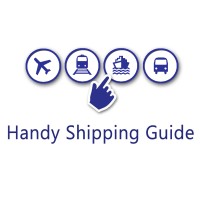Customs Strikes, Brexit Votes, Storm Gareth - it's All Starting to Feel Like Armageddon
UK – FRANCE – With the confusion over Brexit reigning supreme in the news, and the weather contributing its own order of chaos, the British freight industry is starting to feel as if Armageddon is nigh. Five hour queues for trucks in Calais and Eurotunnel due to the French Customs go slow have now been supplemented with the inception of Operation Stack in England as lorries saw the M20 coast bound closed between Junctions 8 and 9, leading to 9 mile tailbacks due to Storm Gareth as RoRo ferry services were suspended.
The continuing delays may of course just be a foretaste of what may be expected should Brexit negotiations go even further south, if that is possible. Together with restrictions on European permits, the potential 22% jump in the cost of new trucks for UK road haulage operators if the new tariffs announced this week come into force, and uncertainties all around, what can importers and exporters do to mitigate the problems?
Once again the solution for many importers and exporters may be to return to more traditional modes of transport. In the early 1970’s there were virtually no trailer services running between the UK and the European ports, simply short sea services. Over the decades this trade has evolved into container feeder services, and here may lay the solution.
Such feeder services between the Channel ports already exist but there are some which stretch the ability to utilise boxes as against what are now traditional trailer routes even further. For example one of the fledgling trailer routes in those first early days of European road freight was the UK – Turkey option, a mode which quickly became firmly established as a driver accompanied route.
Now, with changing technologies and demands, we are seeing a reversion to containers, with such as Hull based logistics outfit John Good offering weekly sea freight services from Istanbul and Izmir that are usually suitable for most needs and offer an excellent alternative to road transport. The company, which has been advising shippers how to prepare for Brexit, claims the services offered have advantages over the road bound route.
Sea freight transits are similar to current road freight transits with port to port in around 8-9 days and door to door in 14-16 days with Customs clearance in Felixstowe. The system is also claimed as being more environmentally friendly than road services. This is an already established and viable option and, if the present confusion over the future of road freight continues, expect to see ever more feeder and short sea options evolve in the near future, particularly for cargo bound further north in the UK.
Photo: Operation Stack, currently in place on the M20 motorway in Kent.


Comments
Post a Comment